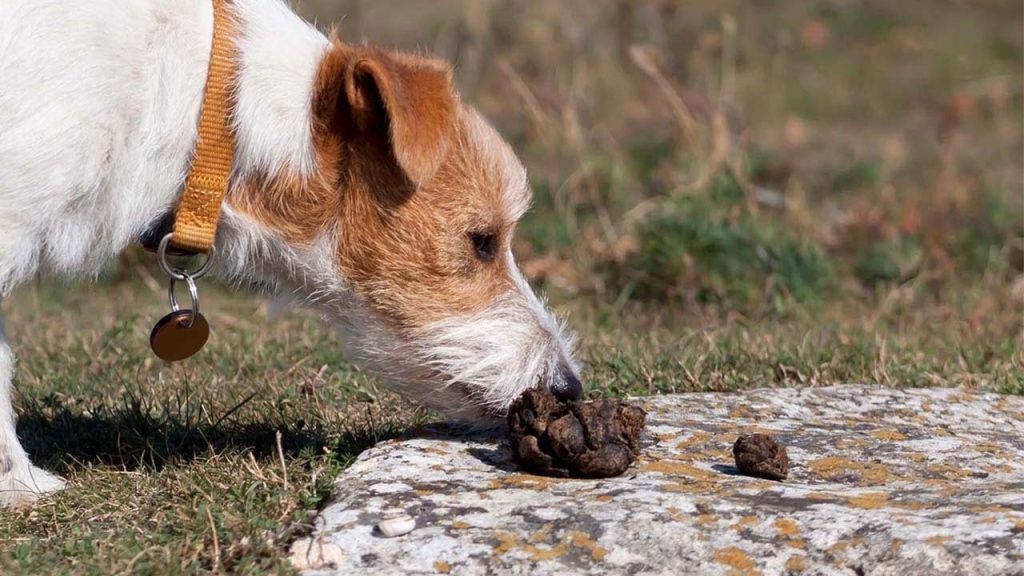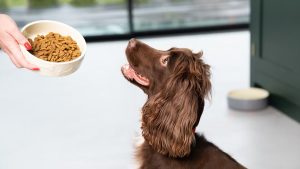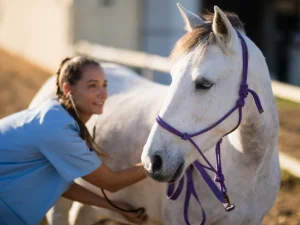Are you worried and frustrated about your dog’s poop-eating habit? This behavior—known as coprophagia—is very generic among dogs. However, it can pose health risks and raise concerns about their well-being. If you’re tense to stop your pet from engaging in this unhygienic habit, you’re not alone in this race, and there are solutions.
In this article, we will discuss the reasons behind coprophagia and provide a few tips to address the issue efficiently.
Why Do Dogs Eat Poop?
Dogs may eat poop for several reasons, including instinct, medical issues, or behavior. Instinctually, mother dogs clean up after their puppies by eating their feces. Medically, dogs may eat poop due to nutritional deficiencies, parasites, or health problems affecting digestion. Behaviorally, dogs might do it out of boredom, stress, or as a learned habit, especially if it gets them attention. Identifying the cause is important to address the behavior effectively.
Instinctual Reasons:
Instinctually, mother dogs clean up after their puppies by eating their waste to keep the area clean and reduce the risk of attracting predators. This behavior is natural and helps maintain a hygienic environment for the puppies, as it reduces the chance of disease or contamination. In the wild, adult dogs may eat poop as a survival tactic to avoid detection by predators, as the scent of feces could attract them. It’s also believed that some wild canines might consume feces to help keep their territory free from any signs that might signal their presence, providing an added layer of protection.
Medical Causes: Illness
Medical issues can lead dogs to eat poop due to nutritional deficiencies, parasites, or health conditions. If a dog’s diet lacks essential nutrients or if they have trouble absorbing nutrients due to parasites or conditions like malabsorption or pancreatic insufficiency, they may turn to feces as an alternative source of nutrition. If this behavior continues, it’s important to consult a veterinarian to address potential health problems and ensure the dog’s diet is balanced.
Behavioral Cause – Attention-Seeking or Anxiety
Boredom or anxiety can also lead to poop-eating in dogs. If a dog isn’t mentally or physically stimulated enough, they may eat poop to entertain themselves or gain attention. Separation anxiety is another common cause, as dogs may eat things they shouldn’t, including feces, when left alone. This anxiety can also lead to other destructive behaviors, like chewing furniture or having accidents inside the house.
Tips to Stop Dogs from Eating Poop
- Provide a Balanced Diet
To prevent poop-eating, make sure your dog is on a balanced, high-quality diet that meets their nutritional needs. If needed, consult your vet about adding supplements like B vitamins and digestive enzymes to improve digestion and overall health. Some believe adding foods like pineapple to their diet can make poop less appealing, while there are also chewable and powdered supplements specifically formulated to discourage coprophagia by making feces taste unpleasant.
- Teach the “Leave It” Command
Teaching the “Leave It” command is an effective way to prevent poop-eating. This command helps your dog understand that they should ignore or stop interacting with something, like feces when prompted. Practice this command regularly, and apply it during walks or outdoor trips when your dog may encounter feces.
- Keep the Environment Clean
Keeping the environment clean is key to preventing poop-eating. Regularly pick up your dog’s feces from the yard or any outdoor area to remove temptation. If you’re out on walks, carry waste bags to clean up after your dog immediately. The cleaner the environment, the less likely your dog will have access to feces, reducing the chance of them eating it.
- Use Distraction Techniques
Using distraction techniques can help redirect your dog’s attention away from feces. When you notice your dog about to eat poop, call their name, offer a toy, or give them a command they know, like “sit” or “come.” Regularly practicing these techniques can help break the habit over time.
- Add Natural Deterrents to Their Diet
Adding natural deterrents to your dog’s diet can help discourage poop eating. Ingredients like pumpkin, parsley, or probiotics may make feces less appealing by altering the taste or smell. Some owners also use additives like nutritional yeast or certain enzymes, which can be found in commercial supplements. Be sure to check with your vet before introducing new foods or supplements to ensure they’re safe and beneficial for your dog.
- Increase Physical and Mental Stimulation
Increasing physical and mental stimulation can help prevent poop-eating by addressing boredom or anxiety. Regular exercise, such as walks, runs, or playtime, helps burn off excess energy. Mental stimulation, like puzzle toys, obedience training, or interactive games, can keep your dog engaged and distracted from undesirable behaviors.
- Use Poop-Repellent Products
Some people use muzzles, like basket muzzles or field guards, to prevent dogs from eating poop during walks. Basket muzzles allow dogs to pant and drink, while field guards protect from hazards like foxtails. Additionally, poop-repellent sprays can make feces taste unpleasant, helping to discourage the behavior. Both options can be effective temporary solutions with proper training.
- Supervise Outdoor Time
Supervising your dog during outdoor time is important to prevent poop-eating. By closely monitoring your dog when they’re outside, you can quickly intervene if they try to eat feces. This helps reinforce good behavior and ensures they don’t have the opportunity to scavenge.
- Address Multi-Pet Challenges
If you have multiple pets, addressing poop-eating may require extra attention. Some dogs may eat the feces of other pets, especially if they feel it’s a competition for attention or food. Ensure each pet has its own space and consistent feeding routine. Regularly clean up after all pets and supervise interactions to prevent this behavior from developing or continuing.
If the behavior persists despite your efforts, it may be time to consult a professional pet boarding and training expert. These specialists are skilled in working with dogs in a controlled, structured environment and can help address various behavioral issues. Here’s how they can assist:
- Boarding and Training Programs: A dog boarding and training expert can take your dog in for a few weeks, working with them daily to address specific behavior issues like aggression, separation anxiety, or excessive barking. The expert provides one-on-one attention, focused training, and socialization in a controlled environment.
- Tailored Training Plans: Just like a veterinary behaviorist, a boarding and training expert will assess your dog’s behavior and create a custom training plan that targets the specific issues your dog is facing. These plans may include basic obedience, impulse control, and more specialized behavior modification techniques.
- Consistency and Structure: One of the key benefits of boarding and training is the consistency and structure the expert can provide. Dogs often thrive in a routine, and these programs are designed to reinforce positive behaviors while addressing undesirable ones.
- Behavioral Therapy: In more severe cases, a boarding and training expert can provide intensive behavioral therapy to help your dog overcome challenging behaviors, especially if it’s a persistent issue. Therapy might involve positive reinforcement techniques, counter-conditioning, and desensitization.
- Owner Education: After the training program, the expert typically provides you with tools, guidance, and follow-up support to ensure the improvements are sustained at home. This helps you maintain the training and continue to work on any lingering issues.
If your dog is struggling with specific challenges, a dog boarding and training expert at a pet resort near Lebanon can provide the focused, expert attention they need. Would you like more information on finding a reputable boarding and training expert in your area?
Conclusion
Breaking your dog’s poop-eating habit requires patience, consistency, and a multifaceted approach. From training and dietary changes to environmental management and vet support, there are plenty of ways to address coprophagia.
Remember, with love and persistence, you can help your dog overcome this habit and ensure they lead a happy, healthy life.





More Stories
How to Balance Dry Dog Food & Treats for a Healthy Diet
Dog-Friendly Hotels in San Diego: Pet Policies, Amenities, and Booking Tips
How to Prepare Your Dog for Their First Luxurious Pet Resort Stay